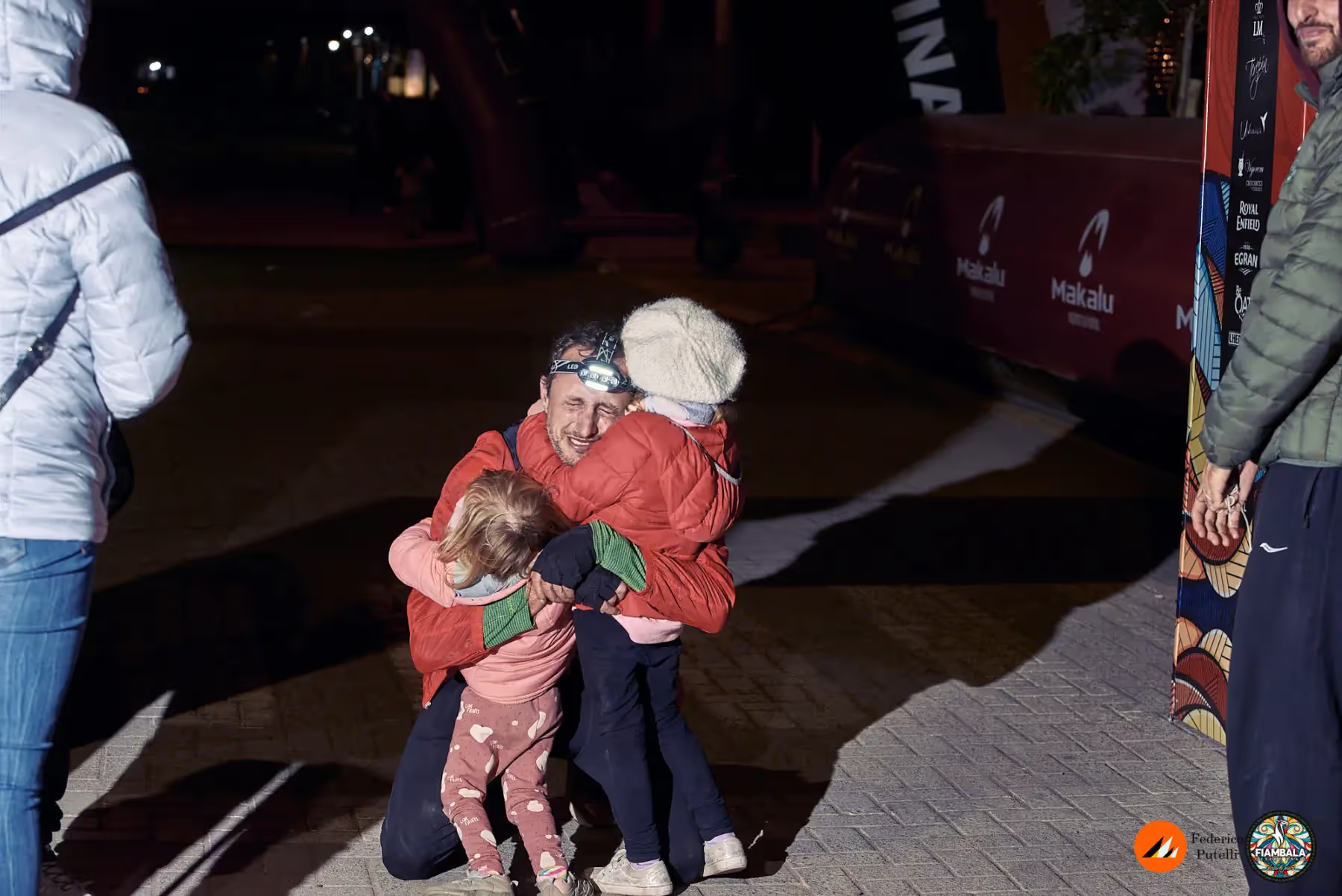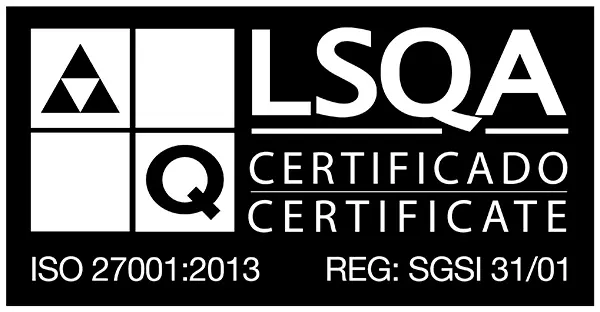“Great achievements in life seem easier once we achieve them.” With this phrase, Andrés Macri, Executive Program Manager of Infocorp, reflects on one of those milestones that sound impossible until they are reached: running 160 km in Fiambalá, Argentina, between deserts, mountains and dunes the size of buildings.
When did you start getting involved in this world of adventure racing and how do you prepare to face each challenge?
That was the first question we asked him, but when Andrés began to answer he made an important clarification: “I can't talk about this experience without naming and thanking Gabriela, a lifelong friend and colleague at Infocorp who took care of all the previous logistics and I also have to talk about Eleo, who is the best companion and motivator”. Gabriela is Gabriela Trindade, SEA Manager Practitioner and Eleo is Eleonora, Andrés's wife. As we all know at Infocorop, behind every achievement, there is always a great team.
“I started out in this world in July of 2022. Although I already had the experience of participating in a 42 km marathon, I returned to training intensively relatively recently. The starting point was a race called ARM Cimarrones, an adventure triathlon where I traveled about 200 km using only a compass and a map. Completing that race took me 26 hours and, nobility obliges, it didn't go very well for me. However, I had one goal: to enjoy and to reach the goal. Luckily I was able to do it. In addition, this event allowed me to enjoy the company of Miltón Rodríguez, “El Capitan”. A true champion of life, a generous guy who to this day treats all of us on the A220 Adventure team like a second family. After the Cimarrones Expedition, I ran several more races that helped me to keep improving and preparing for the great Fiambalá event.”
How do you organize your training with your daily activities and family life?
Andrew: I think that if you really like something, you'll find a way to do it. I love to spend time with my daughters. That's why I train with my power running group early in the morning, between 5:30 and 6. Then, straight to work and when I go out, I make the most of every minute I can with them. Of course, I have to highlight the unconditional support of my wife, who always accompanies me and helps me achieve everything I set out to do. In fact, she also really likes to run. So much so that while we were in Fiambalá, he completed one of the routes of the contest, the 23-kilometer route.
Training on the beach is not the same as facing the Tatón dunes. How did you feel when you found out that you were going to climb the highest dunes in the world?
Andrew: To be honest, I was a little shocked. The first time was really hard. Although we always do specific training, it is very difficult to replicate the conditions of such terrain. What's more, a month before, 60 km were run through the dunes of Cabo Polonio. Unfortunately, I was unable to participate in the event due to a significant injury. A fracture that also almost left me out of Fiambalá. But I didn't plan to miss the race for anything in the world. As I like to say, you can fall, but the most important thing is to get up and keep going. Not to mention that my friends were going to charge me heh.
How do you manage your diet for these events?
Andrew: I have always been careful about my diet. During racing season, I tend to increase my intake of carbohydrates and some supplementary supplements. I also take collagen to take care of my joints. I usually try not to eat a lot of meat and limit alcohol. Although I drink a beer from time to time, I tend to be quite disciplined to get to the races in the best possible way.
And returning to Fiambalá, is the race in South America well known?
Andrew: Yes, in fact, according to my colleagues, it is one of the toughest in the world. It's 160 km in three stages. But I'm not left alone with that, now we're going to run 110 km non-stop south of Rio de Janeiro, in Paraty and I'm also enrolled in La Misión, Villa La Angostura, which is a 200 km race. An incredible self-sufficiency event. In that sense, Fiambalá is different, as it has stalls with food and drinks throughout the tour, you can even eat olives and drink soup!
How would you describe your work at Infocorp?
Andrew: My work at Infocorp focuses on 2 areas. The first is to oversee and lead a team of Project Managers - who do an excellent job and make things a lot easier for me -. And the second, evaluate, together with the assignment team, all of the company's projects in order to allocate the right resources at the right time.
Is there anything in the sports world that you can apply to the company?
Andrew: I think so, everything is related. Not only does running generate serotonin, release stress and help you think more calmly, but it also confronts you with obstacles that can be extrapolated to major work and, above all, life challenges. Careers teach you to always do your best.
Do you know anyone at Infocorp who has done something similar?
Andrew: Yes, I know some people and I'm sure there are many others. Someone who has run much longer distances could even appear!
A small footnote... I am ashamed of my physical condition with this interview haha.
Andrew: Don't make a big deal out of yourself! I also live with pain in my knees, among other things. But as I told you at the beginning, I had the enormous honor of meeting Milton and Diego, two life teachers who inspired me to constantly overcome myself and to overcome fear. In addition, my team is a beautiful human group, like a family. In these races, your jaw hurts more from laughing than your legs from running. I consider them a family and every outing I take with them is a real pleasure.
What is the race that you would most like to run?
Andrew: Fiambalá was one of them. I really like adventure racing. In this type of event, you will find out a short time before the game and at that time they give you the map and the compass to guide you. The one who scores the most control points in numerical order wins. This makes things very unpredictable and balances the physical aspect with orientation skills. I still have a lot to learn in that field. In addition, they are careers of self-sufficiency. Now, in December, there is one in Florianópolis, Malacara Race, an adventure triathlon that I would love to run either this year or next. There is also La Misión in Villa La Angostura, where I am already registered and hope to be able to go in February. It's a very representative race. And dreaming big, the Des Sables marathon. Hopefully we'll be there soon.





